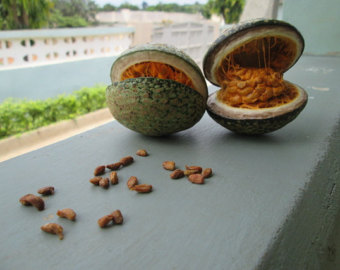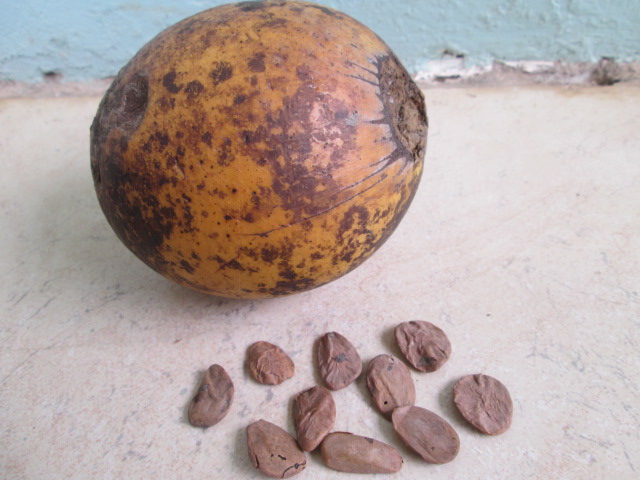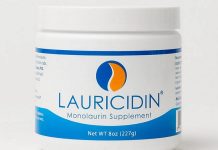Akuamma seeds or Picralima Nitida is an herbal medicine used in different part of Africa as a painkiller. The seeds contain various types of alkaloids which include akuammine and pericine. These alkaloids possess skeletal muscle relaxant, anti-inflammatory, anti-oxidant, anti-diarrheal, antimicrobial, antipyretic, antiplasmodial and antiulcer activities.
Akuamma seeds resemble Kratom in a way because its alkaloid akuammine is related to mitragynine and yohimbine. Studies reveal that Akuamma seeds can be employed as a remedy for fever, hypertension, jaundice, dysmenorrhea, malaria and gastrointestinal disorders.
These seeds are crushed and taken in powdered form, but they have a very bitter taste so usually they are capsulated and sold under the name Picap. The powdered form of seeds can be mixed with food too.
Alkaloids Present in Akuamma Seeds
The two main groups of alkaloids are Akuammine and Pericine. Akuammine acts on delta and kappa opioid receptors.
Akuammidine
It is the primary alkaloid found in the seeds. Structurally it is related to kratom, and it shows the greatest affinity for kappa receptors, making it kappa agonist at opioid binding sites. It has threefold action as a skeletal muscle relaxant, hypotensive action, and local analgesic action. It also has sympatholytic effects.
Akuammine
It is an antagonist at mu receptor. It is a sympathetic system agonist. Its effects resemble that of cocaine. It inhibits intestinal motility and shows a fall in blood pressure. However, at higher doses, it shows hypertension.
Akuammicine
It binds strongly to the kappa opioid receptors.
Pseudoakuammigine
It shows analgesic and anti-inflammatory actions. It acts as an indirect competitive parasympathomimetic. At small doses, it excites the Central nervous system, respiratory system, nervous system, and enhances muscle contractility; at high doses, it causes depression of all these systems.
Akuammigine
It is an antagonist of adrenaline and shows the antiadrenergic activity of the heart, vessels and regulatory center of the circulatory system.
Pericine
It binds to mu-opioid binding receptors. It shows convulsant effects.
Other alkaloids include Picraline, Picraphylline, Picracine, Picranitine, Burnamin and Desacetylakuammiline.
 Positive Effects of Akuamma Seeds
Positive Effects of Akuamma Seeds
As a painkiller
Akuamma seeds are known for their analgesic action. According to users on Reddit and various drug forums, they have been using the seeds to alleviate pain that is caused by Lupus erythematosus, fibromyalgia, arthritis, and migraine.
According to them, that it’s a better alternative to opiates as it doesn’t cause withdrawal symptoms and has little addiction profile. Moreover, it’s a natural solution, so it has fewer side effects. Taking two seeds daily has helped a lot of patients fight pain.
In different hospitals of Ghana, the seeds are sold under the brand name ‘Picap’ as a painkiller, and studies prove that it has potential analgesic activity. Physically active people can take the seeds alone for painful, sore muscles.
The best part about Akuamma seeds is that they act very quickly. The effects are visible within 15 to 30 minutes. However, users claim that the effects are not as strong as Kratom, but it helps a lot.
Sedation
One of the positive effects that are caused by Akuamma seeds includes sedation. For all those who are suffering from sleep disorders like insomnia and nightmares, akuamma seeds have proved fruitful as it has the sedative activity. Once taken before sleeping, it gives the best and most peaceful sleep. According to users, the calming effects appear within an hour, and the seeds have helped users with anxiety, pain, and stress to achieve peaceful sleep.
Produces a sense of relaxation
These seeds are known for reducing stress levels and providing an overall sense of well-being. The seeds have helped many users who face panic attacks and anxiety. When this drug is taken, it helps in relaxing the mental state and produces calmness.
Anti-parasitic action
Akuamma seeds are known for their anti-parasitic action. They specifically act against Trypanosoma, which is a protozoon with a single flagellum. It causes diseases like African sleeping sickness, Leishmaniasis, and Chagas diseases. According to a study ‘J Ethnopharmacol: 1989 May 25: 263-8’ Akuamma seeds have a trypanocidal effect, but its pharmacology is unknown as yet.
Anti-malarial action
Picralima nitida seeds and other parts of fruit and stem bark have been investigated in vitro for antimalarial action. The seeds showed inhibitory activity against the resistant strains of Plasmodium such as Falciparum. Two alkaloids akuammine, and alstonine are important in the therapy of malaria Thus it is considered as a potential antimalarial drug.
Anti-diabetic
One of the alkaloid ‘Akuammicine’ present in the seeds is demonstrated to have anti-diabetic properties. The alkaloid promotes the uptake of glucose into the cells thus reducing plasma levels of glucose, like that of insulin.
Adverse effects of Akuamma Seeds
Bitter flavor of seeds
The worst thing that we know about Akuamma seeds is that it has a very bitter taste. It is even worse than that of Kratom. You won’t like taking the seeds directly because most probably you will vomit or you may feel nauseous after the intake of seeds. Chewing the seeds is out of the question. Users reported that since they are bothered by the taste of the seeds they usually grind the seeds in the blender, then add some turmeric powder and place it in capsules. This way they can avoid the bad taste of the seeds. If you take it in the powder form or tea, you can add sweetener to offset the bitterness.
Headache
If a larger dosage such as 2 grams or more of Akuamma seeds is taken, then there are possibilities that you might experience a headache, but usually, at such large dose, you will also be sedated.
Hyperkalemia and hypernatremia
The seeds can cause ion regulatory disturbances which include slightly increased levels of Potassium and Sodium in the plasma, but it is not significant enough to cause any problem.
[expand title=”%(%strong%)%See References:%(%/strong%)%” id=”r2d2wiki”]
- Opioid activity of alkaloids extracted from Picralima nitida (fam. Apocynaceae). – Menzies JR, Paterson SJ, Duwiejua M, Corbett AD; Department of Biological Sciences, Glasgow Caledonian University, UK.
- Akuammine and dihydroakuammine, two indolomonoterpene alkaloids displaying affinity for opioid receptors. – Lewin G, Le Ménez P, Rolland Y, Renouard A, Giesen-Crouse E. Journal of Natural Products. 1992 Mar
- https://www.reddit.com/r/kratom/comments/4i0ncl/akuamma_seed_capsules_available/
[/expand]









The information is appreciated but the article is written in a dopey, unprofessional manner. It makes it difficult to trust the author and their information. Does anyone proof read or edit these articles? Someone really needs to.
Whao Augusta, what a slave mentality you have! l am sure you understand what the writer conveyed but must you” language shame” this person and diminished his/her efforts?????
I thought they did I ok job at putting out the information. Stop hating it’s the same information your gona find on any other source you read.
wow what a miserable person you are wtf are you talking about
Comments are closed.